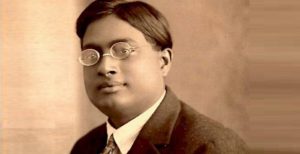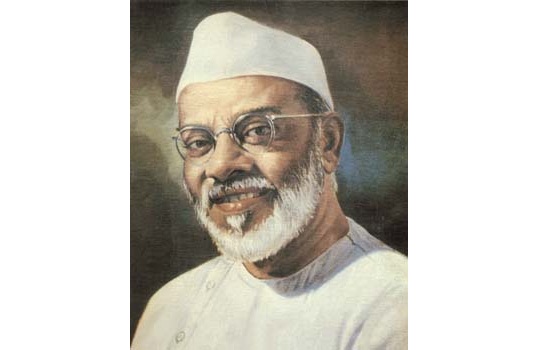
Satyendra Nath Bose, born on Jan 1, 1894 in Calcutta was a Bharatiya scientist, who specialised in Theoretical physics. He reached many pinnacles in quantum mechanics as early as 1920.
In 1916, Bose joined the Science College, Calcutta University as a research scholar. From 1918 onwards, along with his colleague Meghnad Saha, he presented several papers in theoretical physics. For his work on the Theory of Relativity, Bose learnt German afresh and translated the original paper from German. That was the first-ever English translation of the theory itself.
In 1924, while working as a Reader at the Physics Department of the University of Dhaka, Bose felt that the then theory of radiation was inadequate in explaining the results.
Bose derived Max Planck’s quantum radition law without any reference to classical physics and sent it to Albert Einstein himself. Recognising its importance, Einstein translated it into German and submitted it on Bose’s behalf to the prestigious Zeitschrift fur Physick. This paper was seminal in creating the very important field of quantum statistics.
Einstein adopted the idea and extended it to atoms. This led to the prediction of the existence of phenomena which became known as Bose-Einstein condensate, a dense collection of bosons. So, like other units as Ohm, Watts or Newtons in physics, we now have a particle Boson named after a Bharatiya scientist.
Bose’s work stood at the transition between the ‘old quantum theory’ of Planck, Bohr and Einstein and the new quantum mechanics of Schrodinger, Heisenberg, Born, Dirac and others.
His idea of new particles led to lot of research in the invisible particles, one of them being the Higgs-Bosons, now called as God particle. He was the father of the idea of God particle.
In his book The Scientific Edge, physicist Jayant Narlikar observed:
SN Bose’s work on particle statistics (c. 1922), which clarified the behaviour of photons (the particles of light in an enclosure) and opened the door to new ideas on statistics of Microsystems that obey the rules of quantum theory, was one of the top ten achievements of 20th century Indian science and could be considered in the Nobel Prize class.
Although seven Nobel Prizes were awarded for research related to S N Bose’s concepts of the boson, Bose himself was not awarded a Nobel Prize.
The Government of India awarded Bose with Padma Vibhushan in 1954, the second highest civilian award in the country.
His interests included, Sanskrit, philosophy, literature and the Indian independence movement.

